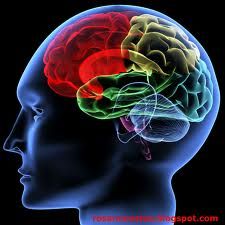Environment
Your Brain Is Like a Liver
Three Zen things to do with your biological nature
Posted January 31, 2013

In my experience, “I choose to be happy” is one of the most ineffective and counterproductive slogans on happiness there are. I have always thought it obvious that if we could will ourselves to happiness, we would do so readily. People do not choose to be unhappy either. It just isn’t how we human beings operate. While we are bestowed with the ability to think and initiate change with thought, while we are able to communicate like no other animal, write amazing blogs like this one, create cathedrals, cure diseases and discover quantum physics, we are not and will never be that cerebral. Robert Ornstein writes in The Evolution of Consciousness,
“The brain evolved primarily to control different body reactions. It is more like the liver than it is like a computer. It isn’t organized for thought.”
If anything can be considered the chief organizing system, Ornstein contends, it is emotion. What we believe to be most human (language, perception and intelligence) makes up only a very small part of the brain’s function.
Ornstein is not the only one humbling those who take excessive pride in their ability to think. Leading neurologist Antonio R. Damasio finds absolutely no evidence that language contributes to our core consciousness. We are conscious without language but never without emotion, just like dogs and cats and deer. Only the extension of our core consciousness, our beautiful, human extended consciousness, would need language. Most of the time, our bodies react to the environment without generating thoughts. Feelings are just faster than thoughts to inform us about changes in the environment. Even emotions, which are feelings filtered by memory or interpreted, are often mere afterthoughts. It is very difficult to change habits with using thought only and practically impossible to talk ourselves out of a depression or phobia. Not surprising to me: the best predictor for therapeutic success is not how brilliant the cognitive interventions are, but if a client likes his or her therapist. We are primitive, social animals, albeit with a lot of potential.
Even though most of us have accepted Charles Darwin’s discovery of evolution, the fact that we operate predominantly like other animals is still a hard pill to swallow. We much prefer to be likened to God, a body-less creature, an angel or a spirit. In our desperation, we even liken ourselves to computers and robots. Everything but body!
Our bond to the body suggests unconquerable limitations. If we cannot escape body, it seems as if there is no freedom to turn things around and change for the better. But these fears are unfounded. In fact, it is my experience that when we humbly acknowledge the power of our animal body which includes our core consciousness, we are in the best position to use our relative freedom wisely and humanely. Effective change must start with recognizing and honoring the body, its primitive feelings and needs. Once we are in touch with the truth of our embodied experiences, we will not only find selfishness, but an immense ability to collaborate and feel compassion. It is for this reason that many spiritual traditions, most explicitly Buddhism, suggest that transcending (not ending) the world of form, including the body, begins with stillness. As we still the mind and look within, we find that there is a potential to connect with the whole universe via our individual body. So, after bravely accepting the truth of our animal nature, here are three Zen things to do:
1) Learn to meditate and become still with your body to observe your inner experiences (an easy introduction can be found in Chapter 9 of my book, see AUnifiedTheoryofHappiness).
2) Foster your innate ability to be compassionate with self and others. While your animal nature seeks to survive, you are also a natural collaborator. Focusing on other people’s survival increases your freedom and adds meaning to your and everybody’s life (life-pi-the-gift-tiger).
3) Begin to notice your similarities with other animals and eventually your interconnections with all living and even non-living things. Your animal nature allows you to see, bond, and collaborate with the whole human family and feel One with the whole world. There are no limits.
With body in mind, thoughts become exponentially more powerful. A calm, caring, and spiritual person is much freer to act in accordance with thought than a frantic, self-centered, and lost soul. The former is not at all as held up by obstacles to act rationally as is the latter. While nobody can choose to be happy, everybody can choose to take a path of happiness. Thoughts can become valuable allies on our path when we do not devalue the body that makes all of them possible.
Robert Ornstein, The Evolution of Consciousness: The Origins OF The Way We Think. New York: Simon & Schusters, 1991, p. 132.
Antonio Damasio, The Feeling of What Happens: Body and Emotion in the Making of Consciousness. New York: Hartcourt Brace & Company, 1999.


